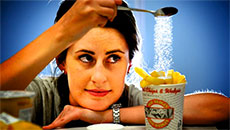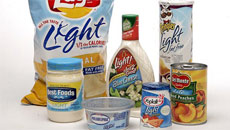A protein that increases levels of LDL (low-density lipoprotein) cholesterol, also referred to as "bad" cholesterol, in the bloodstream is associated with heart attacks, says a study.
Levels of the protein PCSK9 were elevated in the blood of patients having an acute heart attack, but not in those who never had a heart attack or who had recovered from one previously, the findings showed.
The results were replicated in two separate groups of patients, all of whom have coronary artery disease but were not taking a cholesterol-lowering statin drug.
But researchers do not yet know whether the elevated levels of PCSK9 triggers heart attack or its consequences.
"The findings point to an important question: "Are PCSK9 levels elevated shortly before you get a heart attack?" asked lead researcher Alexandre Stewart, principal investigator from the Ruddy Canadian Cardiovascular Genetics Centre at the Ottawa Heart Institute.
"If levels only go up after, that would suggest a side effect of the heart attack. But if they go up before, that suggests it might trigger the event, or make it worse," Stewart added.
The researchers first identified the PCSK9 link to heart attacks using blood samples from patients enrolled in the Ottawa heart genomics study in Canada.
They then confirmed these results with a group of patients from the Emory University in Atlanta, US.
PCSK9 increases levels of LDL cholesterol in the bloodstream by reducing the ability of liver cells to remove and destroy it.
Research indicates that blocking the functions of PCSK9 may offer a new way to substantially lower LDL cholesterol.
The study appeared in the journal PLOS One.





